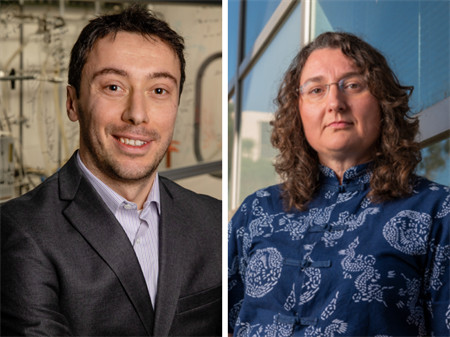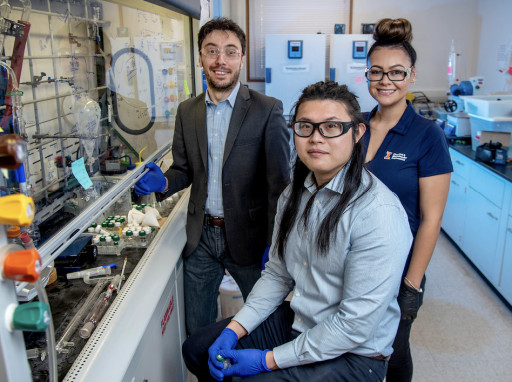URBANA, Ill., Oct. 05, 2022 (GLOBE NEWSWIRE) -- Scientists from the University of Illinois Urbana-Champaign, University of California, Santa Barbara and Dow developed a breakthrough process to transform the most widely produced plastic — polyethylene (PE) — into the second-most widely produced plastic, polypropylene (PP), which will significantly reduce greenhouse gas emissions (GHG).
The new study published in the Journal of the American Chemical Society announces a series of coupled catalytic reactions that transform PE, which is #2 and #4 plastic that make up 29% of the world's plastic consumption, into the building block propylene that is the key ingredient to produce PP, also known as #5 plastic that accounts for close to 25% of the world's plastic consumption.
This study establishes a proof-of-concept for upcycling PE plastic with more than 95% selectivity into propylene. The researchers have built a reactor that creates a continuous flow of propylene that can be converted into PP easily using current technology — making this discovery scalable and rapidly implementable.
Why this matters: Preliminary analysis suggests that if just 20% of the world's PE could be recovered and converted via this route, it could represent a potential savings of GHG emissions comparable to taking 3 million cars off the road.
"If we are to upcycle a significant fraction of the over 100 million tons of plastic waste we generate each year, we need solutions that are highly scalable," Damien Guironnet, Professor of Chemical and Biomolecular Engineering, said. "Our team demonstrated the chemistry in a flow reactor we developed to produce propylene highly selectively and continuously. This is a key advance to address the immense volume of the problem that we are facing."
Contact Information:
Sonia Fernandez
Science and Technology Writer
sonia.fernandez@ucsb.edu
(805) 893-4765
Shelly Leachman
Editorial Director
shelly.leachman@ucsb.edu
(805) 893-4620
Claire Benjamin
Associate Director of Communications Department of Chemical and Biomolecular Engineering University of Illinois Urbana-Champaign
claire@illinois.edu
217-244-0941
Related Images

Image 1: Guironnet_Scott
Co-lead authors: Damien Guironnet, chemical and biomolecular engineering professor at Illinois, and Susannah Scott, Distinguished Professor and Mellichamp Chair of Sustainable Catalytic Processing at UC Santa Barbara.

Image 2: Guironnet-plastic 07
Chemical and biomolecular engineering professor Damien Guironnet and graduate students Vanessa DaSilva and Nicholas Wang demonstrated a new scalable process that can upcycle plastics. Credit: Heather Coit/University of Illinois
This content was issued through the press release distribution service at Newswire.com.
Attachment
